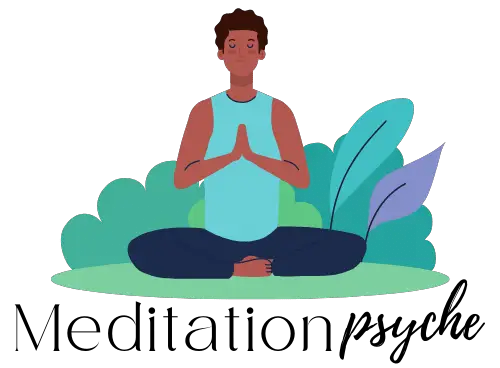Jon Kabat Zinn is a creator of the Stress reduction clinic and the center for mindfulness at Massachusetts medical school.
Also, He is a founding member of the Cambridge zen center. And He has developed a Mindfulness-based stress reduction program (MBSR) in 1979 using his Buddhist mindfulness and meditation teachings.
The MBSR program has many life-changing benefits, and now it is offered by many renounced hospitals and healthcare organizations.
Kabat Zinn was first introduced to meditation by zen missionary Philip Kapleau, who came to give a talk at MIT where Kabat Zinn was a student.
After that, He went to study meditation and mindfulness under the guidance of Thích Nhat Hạnh and Seungsahn.
And later, He started teaching mindfulness in a scientific context, in a way that everyone can accept without any religious classification or not in connection with Buddhism.
According to Kabat-Zinn, Mindfulness is a cultivation of moment-to-moment non-judgmental awareness.
In other words, It’s a present moment awareness or developing a conscious state of mind free from every sort of judgment and interpretation.
This may look simple and easy to do, but it’s one of the most difficult tasks due to the restlessness nature of our mind and the accumulated impressions at our subconscious level.
We are so trapped in our conditioned and noisy state of mind that it becomes difficult to distance ourselves from our thoughts and feelings to cultivate awareness in the present.
So, If we want to cultivate mindfulness or present moment awareness, we should first bring certain attitudinal approaches for it, instead of keeping wrong beliefs and expectations or thinking about gaining some kind of special power or enlightenment.
With that keeping in mind, here are 9 Attitudes Of Mindfulness that you can apply in your routine life to cultivate mindfulness and heighten your formal or informal meditation practice.
Kabat-Zinn’s Attitudes Of Mindfulness
1) Non-judging
Non-judging is the most important element in cultivating mindfulness.
If we closely observe our thoughts, we will find that we have judgments and opinions about everything and everyone.
Every time, the constant stream of judgments like this is bad or this is good, I like this or I hate this, This is right or this is wrong is flowing in our heads. Here, the tragic is, we are doing it unconsciously and draining our energies every moment. Isn’t it?
So, when we speak mindfulness of being non-judgmental, that doesn’t mean to stop judging somehow (also you can’t). Instead, being aware of that judging nature of mind and not judging your judging.
When we say non-judgmental awareness, we are talking about a very fine degree of discernment of clarity, understanding, and wisdom. Also, noticing the tendency of our mind and its thinking patterns.
As you progress in being voluntarily non-judgmental and aware of being judgmental, you will find judging tendencies create some kind of veil and don’t allow you to see things as they are, but to see them only through your lens of ideas and beliefs.
But, after months and years of practice, you may become free from this type of judgmental compulsive drive, rest yourself in a state of pure awareness and discernment when judgment rises up.
2) Patience
“A man who is a master of patience is master of everything else.”
When we are in a hurry or impatient for the next task, we always lose awareness of the present moment and start imagining things that are not in our control.
When we are rushing towards something, we often become unconscious and run after the things that create miseries in our lives.
Sometimes we are impatient with other people, impatient at work, impatient to get things done. right?
But this attitude of patience is also profoundly restorative and is akin to recognizing as some children don’t; for example, they try to make the butterfly come out before its time from the chrysalis, that certain things can’t be hurried but let things unfold in their time.
So if we actually learn to be patient with ourselves, then we’re inhabiting the present moment in ways that have great comfort and profundity of both acceptance and wisdom associated with them.
3) Beginners’ Mind
Beginners’ mind means child-like, always new, fresh, willing to accept new ideas, and ready to forget the past.
The word “Beginners’ mind” is a lovely orientation to define the present moment that this moment is fresh and we’ve never been in this one before.
Notice how we are seized by so many thoughts, emotions, and desires throughout the day, so we can’t allow ourselves to see things as if for the first time.
For instance, think about children with the beginners’ mind, observe how they live every moment, and see it without any predictions and beliefs.
Yet, This fresh moment we could also bring to any moment by cultivating the beginners’ mind.
When we consider the expert’s mind, there are very few possibilities for transformation. At the same time, there are endless possibilities for the mind of beginners. Right?
So, it’s a kind of discipline trying to cultivate the beginners’ mind in every aspect of your life and not sticking with our ideas and opinions.
4) Trust

“Self-trust is the first secret of success.”
Trust is a wonderful and essential attitude to cultivate because many phases of our lives are uncertain and unmanifested that requires trust a deep sense of trustworthiness in ourselves and others to live a life free from stress and anxiety.
A good place to start this is with ourselves and with our body. Trusting how beautifully the body supports our life that we often take it totally for granted until something serious happens.
But from now, trust in general that we are/will be taken care of. Also, trust your breath that is coming in and going out; trust your ears, eyes, hands, legs, heart, organs, metabolism, nervous system, and immune system that they are working as they should.
The more we can bring trust to our relationships, trust to people, trust to nature, and trust to various challenges that we face in life so that we can actually reside in our own confidence in our ability to meet whatever comes towards us.
This sense of trust or trustworthiness keeps us away from negative emotions and creates space for peace and new opportunities.
If you don’t have enough trust within yourself, you can cultivate it by practicing it consciously every time when you feel a lack of trust or uncertainty.
5) Non-Striving
Non-striving means not doing and not seeking a particular consequence out of your actions.
In other words, non-striving refers to accepting things as they are and not trying to reach anywhere else or to make anything happen out of something or to experience anything special.
You see, many people practice mindfulness to get relaxation or well-being, but this striving often deviates them from the true path, takes them away from the present moment, and may put them in a state of aversion and vain expectations.
It doesn’t mean that you won’t get things done. Instead, whatever you do will come out of being with much greater perception, wisdom, and appropriateness to the situation with non-striving.
So, to cultivate mindfulness, just try to be with the present and the unfolding of life moment to moment without keeping any agenda or striving for anything.
When you practice this non-striving, you will find that being here is pretty much good enough, and it is tremendously healing and restorative for you.
6) Letting Go
“If you want to fly in the sky, you need to leave the earth. If you want to move forward, you need to let go the past that drags you down.”
Letting go means allowing things to be as they are and not be too cough up in having to have them be a certain way when evidence is they are not that way.
When you are caught up in temptations, your own desires or attachments to want things in a certain way create miseries for you. Isn’t it?
But letting go and accepting things and people, as they are, can actually open a doorway to freedom and relinquish you from suffering.
For example, breathing, every time when you breathe air, you have to let it go out; otherwise, there will be no room for the next inhalation. So, it’s a part of life to receive and then release, receive and let it go.
In this same way, release all your vain expectations regarding things outside of your control and try to rest yourself in the inner stillness – mindfulness.
7) Acceptance

Acceptance of things, people, and situations as they are is a powerful attitude to cultivate mindfulness.
Sometimes when things are not in the way we want them to be, that moment acceptance is doesn’t mean that we can’t work to change that thing or circumstances from one kind to another, but It means that unless we accept things as they are, we will force things to be as they are not and that can cause an enormous amount of difficulties.
When we accept circumstances as they are, after that, we can actually recognize them and apply our wisdom to solve them.
In contrast, if you don’t accept the situation and keep complaining or blaming others, you can’t understand that situation, and without understanding it, you apply your wisdom to find the way out.
Thus, acceptance can also be a doorway to freedom and the end of suffering.
8) Gratitude
“Gratitude can transform common days into thanksgivings, turn routine jobs into joy, and change ordinary opportunities into blessings.”
We have borrowed a lot of things that we never really pay attention to. Isn’t it?
So, bringing gratitude for what we have can be a beautiful practice instead of digging into our past or future.
Gratitude has a positive power to change our emotional state to love, kindness and compassion.
Just think for a moment, Isn’t it amazing that we are alive, our mind is working properly, our hands and legs are working well, our heart, liver, lungs, and others organs are functioning as they should.
Thus, we take so much for granted from in and out that we should appreciate.
9) Generosity
Generosity is also a beautiful feeling that you can offer to others. Not for the sake of showing or fostering pride that I am a generous person, but for humanity and to add some value in others’ lives.
“The most truly generous persons are those who give silently without hope of praise or reward.”
When you are generous and care for other people, it strengthens interconnectedness and spreads joyfulness and kindness in others and yourself.
The beauty of these 9 attitudes is, they all are interconnected. They all point to a single object, “the present moment awareness.”
You see, if you practice non-judging, there are acceptance, non-striving, letting go and other attitudes directly or indirectly embedded in it. Thus, any one of these attitudes can be a doorway to all of them.
So, there is no need to remember all these 9 attitudes of mindfulness. Instead, start with the one attitude and try to cultivate it throughout your day.
I hope you enjoy reading this article. If you have any thoughts to share, feel free to comment below.
Be Mindful and Make your life more alive.
Thank you.

